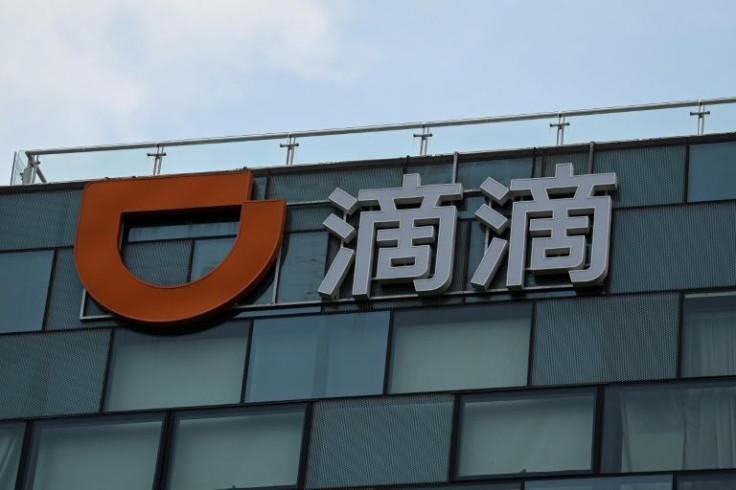Didi Shareholders Vote To Delist From New York Stock Exchange
Shareholders of Chinese ride-hailing giant Didi Global voted Monday to delist the company in New York, the firm said in a statement, nearly one year since it was hit by a sweeping tech clampdown.
Didi, once known as China's answer to Uber, got into hot water after ploughing ahead with an initial public offering in the United States in June 2021, reportedly against the wishes of regulators in Beijing.
Days after Didi raised $4.4 billion in its initial public offering, Chinese authorities launched cybersecurity investigations into the company, sending shares plunging. Its service was ordered off Chinese app stores soon after.
Monday's decision came after an extraordinary general meeting in Beijing, where shareholders voted to "delist the company's American Depositary Shares from the New York Stock Exchange as soon as practicable," Didi said in a statement on Monday.
The resolution also stated that Didi's shares "will not be listed on any other stock exchange before the delisting is completed," so as to "better cooperate" with authorities' cybersecurity review and rectification measures.

The statement did not offer any details as to why Didi was backtracking from its decision to raise funds in the United States.
The move is expected to pave the way for a Hong Kong listing, which was reportedly put on hold after China's top internet watchdog told executives their proposals to prevent security and data leaks were insufficient.
Didi has dominated the Chinese ride-hailing market since winning a costly turf war against US titan Uber in 2016.
Its app claims to have more than 15 million drivers and nearly 500 million users.
Several US-listed China tech companies -- including Alibaba -- have held initial public offerings in Hong Kong in recent years as the United States stepped up scrutiny of Chinese firms.
© Copyright AFP {{Year}}. All rights reserved.





















